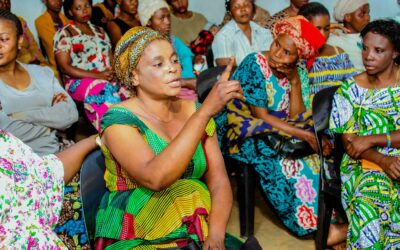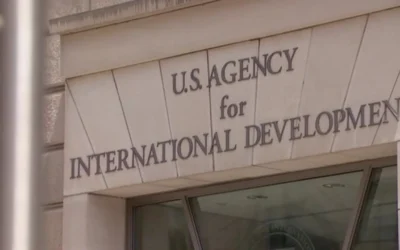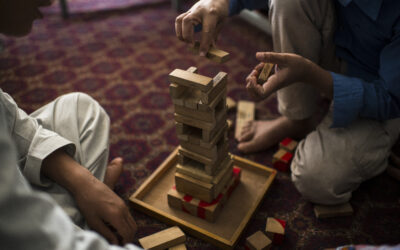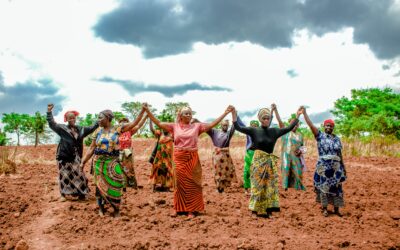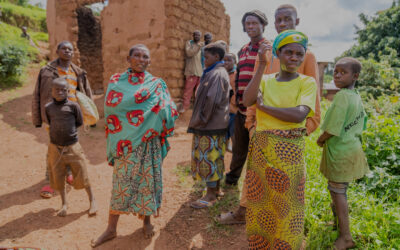Forgotten Diseases in the Time of COVID-19
World immunization week is April 24th through the 30th this year. We want to highlight the important prevention work that still needs to go on, but is often disrupted, in this time of the COVID-19 pandemic. The World Health Organization is taking this time to promote vaccines as one of the best health interventions that can be done to prevent diseases.
With the world understandably focused on the pandemic at hand, we want to pause and reflect on how there are many forgotten diseases still affecting people around the world. When the novel coronavirus started to spread to less-developed countries, many closed their borders, fearing their already stressed healthcare systems would not be able to handle a pandemic. These lockdowns could cause a spike in cases of diseases that can be prevented by vaccines or other treatments.
Countries with malaria continue to face challenges with controlling and preventing malaria cases. Malaria, which is transmitted by mosquito bites, is preventable. Some countries have already slowed down their measures to prevent malaria in order to social distance or pivot to preparing for COVID-19. The World Health Organization recommends all malaria prevention, such as mosquito nets and medications, to continue. Did you know that in 2017, there were 435,000 malaria-related deaths globally? We don’t often think of malaria as something that could turn into an outbreak, but in countries more at risk than the U.S., it could cause undue stress on already vulnerable healthcare.
Standard vaccinations aren’t only on the decline in the United States, where we have access to clinics and regular appointments, but in other countries where vaccinations are typically only accessible in group settings. As of April 13th, 24 low- and middle-income countries have stopped their Measles and Rubella Initiatives where groups of people will get vaccinated for highly contagious diseases like measles. This vaccination initiative is still incredibly important. Before a vaccine was widely administered, there were measles outbreaks every couple of years of epidemic proportions, causing 2.6 million deaths each year. Other diseases such as polio are concerned to lead to an outbreak without continued immunizations, which occurred in 2013 during the conflict in Syria and Iraq. This is why immunizations are so important during times of emergency, whether in conflict or during stay at home orders.
We’ve seen in the Ebola outbreak that supply chains and access to medicines were negatively impacted, causing illness and preventable deaths. During this outbreak, 11,000 people died from malaria, HIV, and tuberculosis in Sierra Leone, Liberia, and Guinea (IsGlobal). During the COVID-19 pandemic, we’ve already seen delays of over a month for HIV/AIDS, TB, and malaria medicines (Devex).
These are only a few examples of how issues of health are intertwined in less developed countries. Methods for treating disease, whether through vaccines, mosquito nets, or medications, are in crisis. World immunization week looks different this year as our focus shifts to the newest virus. Scientists are working hard to create a new vaccine to defeat COVID-19, just as the measles vaccine works to fend off outbreaks.
This situation is ever-changing, and we know we are not epidemiologists or experts in this field. But what we do know is that COVID-19 is deeply impacting other pressing health concerns, a reality we cannot ignore. Follow along with One Day’s Wages as we support our partners to address healthcare initiatives to prevent the spread of disease. Donate, if you’re able, to our preventable diseases fund.
More stories of impact
Turning Challenges into Opportunities: Masoka’s Journey of Empowerment
Masoka’s hands are stained with the rich soil of the land she now calls home. A 37-year-old mother of four, she arrived at Dzaleka Refugee Camp in Malawi after fleeing the conflict in her home country, the Democratic Republic of the Congo. The future felt uncertain,...
What Was USAID, and What Now?
USAID has made news headlines constantly over the last few months. You may find yourself wondering: what is USAID, and is One Day’s Wages affected by its dismantling? As a global development organization, we at ODW care deeply about the people who depend on foreign...
Growing Love, One Drop at a Time: How One Woman Turned Her Birthday into a Gift of Clean Water
When Sara, a graphic designer and mother from Oregon, started thinking about how to celebrate her birthday, she decided to do something different—something meaningful. With a belief that “we are all connected… with the power to affect change by how we live our own...
Bridging the Gap: An Update on Our Response to the Funding Freeze
In Matoh, Cameroon, a mother prepares to give birth. Life in a conflict zone means getting to a safe facility with trained health workers is nearly impossible. Fortunately, a new mobile clinic begins offering prenatal care and transportation to a birthing clinic,...
Why We Invest in Women
There’s an old Ghanaian proverb: “If you educate a man, you educate an individual. But if you educate a woman, you educate a family.” On this International Women’s Day, we celebrate the power of women—how their resilience, leadership, and determination transform not...
The Case for Social Inclusion
Today is the World Day of Social Justice! Never heard of it? Never fear, we’re here to fill you in. In 2009, the United Nations General Assembly launched the World Day of Social Justice to recognize our on-going need for inclusive economic development and decent work...
LEARN
Leadership
Transparency
Read the Latest
Contact Us
COLLABORATE
Faith Groups
Schools
Businesses
Get Involved
One Day’s Wages exists to alleviate extreme poverty by investing in, amplifying, and coming alongside locally led organizations in underserved communities.
©2025 One Day's Wages is a registered 501(c)(3) organization | Tax ID #26-2566653 | Privacy policy | Terms of use
P.O. BOX 17575 Seattle, WA 98127 | Contact us

